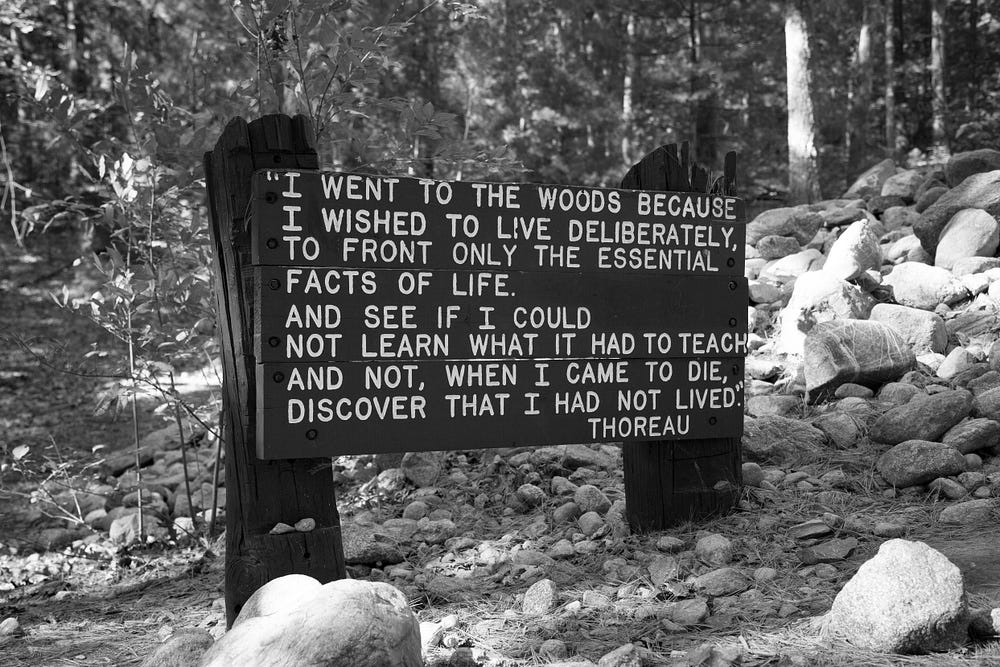It’s common advice when you can’t make up your mind. You’ve heard it, and you’ve probably given it at some point in your life.
It sounds like logical advice. List the pros and cons and go with the answer that has most to gain and least to lose.
But that’s exactly the problem. It’s a logical approach.
“Why don’t you make a list of pros and cons!”
Humans don’t usually make decisions based on logic. And when we do, if the logic is mismatched to our emotions or to our beliefs and values held by the subconscious mind, we’re not happy with those choices in the long run.
“As hackneyed and cliche as it sounds, follow your heart. We are all given intuition and instincts, and sometimes it is hard to follow those instincts with the fears and pressures that surround us — but you have to do it.” — Michael Feinstein
A list of pros and cons is a starting point, but it’s not an ending point.
You need to be informed and aware in the decision making process. You need to do your homework.
So go ahead and make your list, but evaluate it lightly.
The problem with the list is it’s not nearly as analytical or logical as you think. The list is influenced by your cognitive biases, self-limiting beliefs, overconfidence, the illusion of control, and too narrow a focus.
It’s easy to weight the list toward the solution you want, even if you aren’t consciously aware you’re doing it.

A list of pros and cons locks you into thinking you only have two choices.
Lists of pros and cons are often options that are opposed to each other.
Should I move or not? Do I stay in the marriage or not? Should I go back and get my degree or not?
Maybe there are other options. Maybe neither choice is right.
When you focus on the two opposing options, you’re not open to creative inspiration coming up with a solution.

Making a list is good for simple questions but not for the complex ones.
Simple questions can be answered with a list of pros and cons, but complex questions are better answered by your gut.
Your most rudimentary part of your brain is where your instinct resides. This part includes your amygdala. It’s the part of the brain where emotions and memories arise.
Your emotional brain is always “on”, and it works fast with little information. But it learned from experience, so don’t confuse that with impulsivity.
Don’t be swayed by the word “emotion” either. “Emotional” has a bad connotation in our society. The meaning of emotion here relates more to instinct.
We all know the feeling of ignoring our instincts then regretting it later.
When you don’t follow your instincts, you feel uneasy with your choice. The decision haunts you.
“Your heart and your instincts are far more reliable than your brain. When you follow your heart, you can be sure you won’t regret it later. Even if you calculate your every move, it’s not like life ever goes according to plan.” — Nithya Menen
So go ahead and make your list. You’ve done your due diligence. You’re informed.
Now set the list aside and do what you want to do.
That doesn’t mean F*** You I’m doing what I want!
It means be honest with your deepest desires. It means stay true to your core values.
No list that convinces you to do something against your principles is ever the answer.
BTW, read this for more about staying true to your values: Do You Value Your Values?
Do what the inner voice of a higher wisdom is guiding you to do.
Accept the outcome of the choice you make, whether it lets you down or exceeds your wildest expectations.
Make your list, but in the end, if it doesn’t feel right in your gut, don’t do it.
I made a 5-day Guide to Mastering Happiness, and it’s yours for free! Click here to get the guide for free!
Visit me at www.christinebradstreet.com
Cross posted at www.christinebradstreet.com and Change Your Mind Change Your Life


